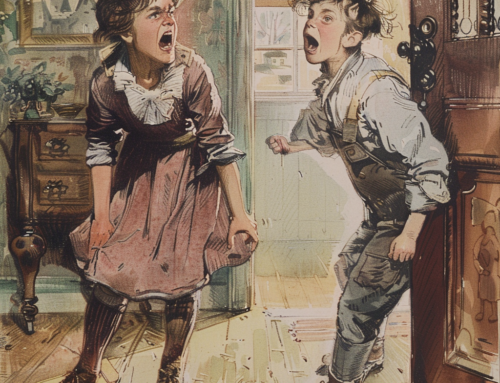Your Child’s Speech Journey: Understanding Articulation Disorders
Does your child light up your world with their giggles and growing vocabulary?
Communication is a beautiful gift, and as parents, we cherish those early attempts at words and stories. But what if your child’s speech isn’t developing quite as you expected?
Perhaps their pronunciation is a little unclear, or they seem to have trouble with certain sounds. If you’re wondering if these could be signs of an articulation disorder, you’re not alone.
Kutest Kids is here to help you understand what articulation disorders are and how to navigate getting the support your child needs in Philadelphia.
Speech and the Sounds We Make
Speech is a complex dance! It involves the coordinated effort of your lips, tongue, teeth, jaw, and vocal cords to produce the sounds that form words and sentences. These individual sounds are called phonemes, the building blocks of spoken language. Imagine them as the colorful tiles that come together to create a vibrant mosaic.
What is an Articulation Disorder?
An articulation disorder happens when a child has difficulty producing specific speech sounds correctly. This doesn’t necessarily mean they can’t make the sound at all, but rather that the way they move their mouth or tongue might not be quite precise. It’s like a single tile in the mosaic being slightly off-color or misplaced.
Here’s the key thing to remember: articulation disorders are distinct from phonological disorders. While they can be confusing at times, there’s a subtle difference. Children with articulation disorders might struggle with specific sounds, like leaving out the “r” in “rabbit” or having a lisp. Phonological disorders, on the other hand, involve patterns of sound errors. For instance, a child might consistently replace all sounds made at the back of the mouth (like “k” and “g”) with sounds made at the front (like “t” and “d”).
Signs to Watch For
Every child develops at their own pace, and there’s a natural range of what’s considered typical for speech development. However, if you notice some of these signs in your child, it might be a good idea to consult a speech-language pathologist:
- Difficulty producing certain sounds: This could be anything from a lisp (distorted “s” sound) to leaving sounds out of words entirely (saying “wun” instead of “run”).
- Inconsistency in sound production: Sometimes your child might be able to make a sound perfectly, and other times it comes out differently.
- Speech that is difficult to understand: This could be due to frequent sound substitutions or unclear articulation.
Understanding the Causes
The exact cause of an articulation disorder can vary. Sometimes, it might be related to oral motor weakness – the muscles in the lips, tongue, and jaw that control speech production may not be quite as strong as they need to be. In other cases, hearing difficulties could play a role. If a child can’t hear the sounds they’re supposed to be making clearly, it can be challenging to learn how to produce them correctly themselves. There can also be structural factors at play, such as a tongue tie or cleft lip.
The good news is that a qualified speech-language pathologist can assess your child’s individual situation and determine the underlying cause of their articulation disorder.
Early Intervention is Key
Just like any skill, speech development thrives on practice and the right guidance. If you suspect your child might have an articulation disorder, the sooner they receive support, the better. Early intervention can significantly improve a child’s speech clarity and overall communication skills.
Speech Therapy: Empowering Communication
Speech therapy is a form of therapy specifically designed to address speech sound disorders. A licensed speech-language pathologist will work with your child to develop their oral motor skills, practice correct sound production, and build strategies for clear communication. Therapy sessions are often fun and engaging, using games, songs, and activities to make learning enjoyable.
Kutest Kids: Your Partner in Philadelphia
At Kutest Kids, we understand the importance of early intervention for children with articulation disorders. Our team of experienced and compassionate speech-language pathologists is here to provide comprehensive evaluations and personalized therapy plans in a warm and welcoming environment. We work closely with families to ensure your child receives the support they need to reach their full communication potential.
Taking the Next Step
If you have concerns about your child’s speech development, don’t hesitate to reach out to a speech-language pathologist. Here at Kutest Kids, we offer free consultations to discuss your child’s unique needs. You can also find helpful resources from organizations like the American Speech-Language-Hearing Association (ASHA) at [ASHA website].
Remember, articulation disorders are treatable, and with the right support, your child can blossom into a confident communicator. Here are some additional points to consider as you navigate this journey:
- Embrace Milestones: Celebrate your child’s progress, no matter how small. Every sound mastered, every word spoken clearly, is a victory.
- Practice Makes Perfect: With guidance from a speech-language pathologist, you can incorporate fun practice activities into your daily routines. Singing songs, reading books together, and engaging in conversation are all opportunities to reinforce correct sound production.
- Patience is Key: Speech development takes time. Be patient with your child and avoid frustration. Positive reinforcement goes a long way in keeping them motivated.
- Collaboration is Crucial: Speech therapy is most effective when there’s open communication between therapists, parents, and caregivers. Work together to ensure consistency in approach and celebrate successes as a team.
- Celebrating Differences: Every child learns and communicates at their own pace. Embrace your child’s unique journey and avoid comparing them to others.
Building a Brighter Future
By understanding articulation disorders and seeking the right support, you’re empowering your child to build strong communication skills for a lifetime. Kutest Kids is here to walk alongside you on this journey. We believe in the power of early intervention and the joy of clear communication. Let’s work together to help your Kutest Kid blossom into a confident and expressive speaker!




